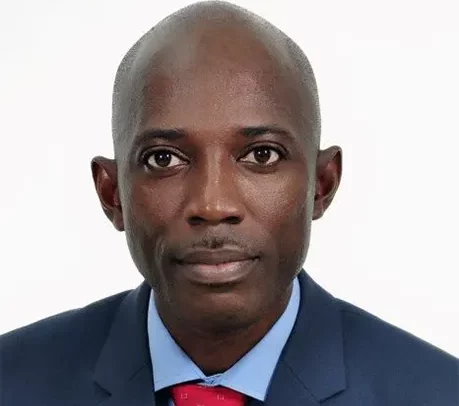Frank Asirifi Otchere
The Ghana Grid Company (GRIDCo) has called for urgent intervention from National Security agencies to protect its transmission infrastructure and operational sites, which are increasingly been threatened by illegal mining activities, popularly referred to as galamsey.
Deputy Chief Executive for Engineering and Operations at GRIDCo, Frank Otchere, made the appeal during a working visit by the Parliamentary Select Committee on Energy, warning that illegal mining activities near the company’s transmission towers pose a serious risk to the safety and integrity of their operations.
According to him, the encroachers are digging close to the foundations, which could weaken the towers which are carefully engineered to withstand immense weight and pressure.
Mr. Otchere further stated that the company’s maintenance teams sometimes face attacks from some encroachers in an attempt to access some sites where these transmission infrastructure are located.
“Unfortunately, there are some areas that even when our maintenance teams go there, they get shot at. And some of them have had to run away,” he disclosed, adding that the situation has made it impossible for GRIDCo to operate in certain locations without security support.
Director of System Operations at GRIDCo, Ing. Hussaini Adams, for his part, said the situation, if not addressed, may soon affect power lines that supply electricity to the entire country.
He also mentioned land encroachment and the high costs associated with paying compensation to landowners and farmers.
Chairman of Parliament’s Energy Committee, Emmanuel Bedzrah, who is also the Member of Parliament for Ho West, assured management of GRIDCo of the committee’s full support in addressing the challenges facing the company, while calling on illegal miners to refrain from operating near power lines and also desist from attacking GRIDCo staff carrying out their duties.
The company’s challenges come amid growing public concern over the widespread destruction caused by illegal mining in the country’s water bodies, particularly the Pra, Birim, and Offin rivers.
Communities in farming areas have also raised alarms, reporting that once fertile cocoa and yam fields have been affected by deep, abandoned pits, rendering the land barren and unsuitable for agriculture.
Studies by Ghanaian researchers have also revealed that tens of thousands of hectares of forests and farmlands have been lost to illegal mining activities in recent years, often occurring within protected reserves and ecologically sensitive areas.
Toxic chemicals such as mercury and cyanide, commonly used in gold extraction, have contaminated the soil and water systems, resulting in fish die-offs, livestock fatalities, and a worrying increase in health-related issues across affected communities.
The University Teachers’ Association (UTAG), opposition New Patriotic Party (NPP), Catholic Bishops’ Conference, National Democratic Congress (NDC) cadres, among other individuals have urged President John Mahama to declare a state of emergency to address the galamsey menace.
The Coalition Against Galamsey, for instance, has expressed disappointment over government’s inability to deal with illegal mining despite promises made by the NDC to tackle the issue while in opposition.
By Ebenezer K. Amponsah


